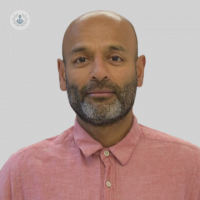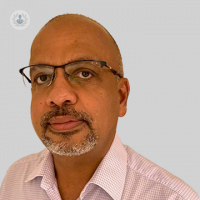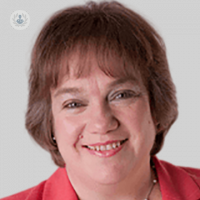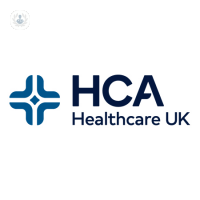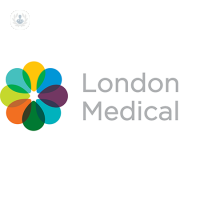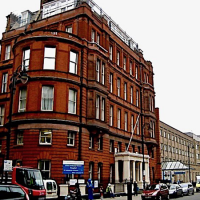What are growth disorders?
Growth disorders are anomalies or irregularities during a child’s growth and development. This means that a child can either grow more slowly or faster when compared to other children of the same age. Weight and height are the main, more evident, characteristics of growth. When these measurements are different from the standard growth chart, there may be a growth disorder present. You should have your child examined periodically to determine whether there are irregularities in their growth process.

Prognosis:
If a child is suffering from a growth disorder, this may be associated with potential cognitive impairment and impaired verbal skills. In turn, these may evolve into social and emotional issues.
What are the signs of growth disorders?
The most common growth disorder symptoms include:
- A discrepancy in the growth to age ratio;
- Lack of appetite;
- Crying;
- Paleness;
- Frequent vomiting;
- Diarrhoea;
- Constipation;
- Sleep disorders;
- Apathy;
- Weight loss.
How are growth disorders diagnosed?
To formulate an accurate diagnosis, your child needs to be examined by a doctor. The doctor will measure your child against the growth curves and measure their weight and height against the parent’s weight and height. Furthermore, an X-ray scan can assess the child’s bone development stage and determine whether there is a growth disorder when compared to other children of the same age. Should the paediatrician advise you to see other specialists, treatment will eventually involve other doctors as well.
What causes growth disorders?
Growth disorders can be caused by genetic, psychological, hormonal, nutritional and environmental factors:
- Growth hormone deficiency, which is essential during the growth and development process;
- Metabolic disorders and malabsorption syndromes (for example, coeliac disease);
- Congenital malformations of the organs;
- Malnutrition (excesses, or imbalances in a person's intake of nutrients);
- Genetic factors;
- Psychological factors;
- Thyroid disorders;
- Urinary tract infections.
How can growth disorders be treated?
The treatments for growth disorders greatly depend on the underlying cause.
Which doctor should I talk to?
First of all, you should see a paediatrician. The paediatrician may refer your child to other specialists and based on further testing and diagnosis, your child may be treated by an endocrinologist, physiotherapist, nutritionist, psychologist or psychiatrist.
06-22-2016 05-12-2023Growth disorders
Dr Helen Spoudeas - Paediatric endocrinology, diabetes & metabolism
Created on: 06-22-2016
Updated on: 05-12-2023
Edited by: Carlota Pano
What are growth disorders?
Growth disorders are anomalies or irregularities during a child’s growth and development. This means that a child can either grow more slowly or faster when compared to other children of the same age. Weight and height are the main, more evident, characteristics of growth. When these measurements are different from the standard growth chart, there may be a growth disorder present. You should have your child examined periodically to determine whether there are irregularities in their growth process.

Prognosis:
If a child is suffering from a growth disorder, this may be associated with potential cognitive impairment and impaired verbal skills. In turn, these may evolve into social and emotional issues.
What are the signs of growth disorders?
The most common growth disorder symptoms include:
- A discrepancy in the growth to age ratio;
- Lack of appetite;
- Crying;
- Paleness;
- Frequent vomiting;
- Diarrhoea;
- Constipation;
- Sleep disorders;
- Apathy;
- Weight loss.
How are growth disorders diagnosed?
To formulate an accurate diagnosis, your child needs to be examined by a doctor. The doctor will measure your child against the growth curves and measure their weight and height against the parent’s weight and height. Furthermore, an X-ray scan can assess the child’s bone development stage and determine whether there is a growth disorder when compared to other children of the same age. Should the paediatrician advise you to see other specialists, treatment will eventually involve other doctors as well.
What causes growth disorders?
Growth disorders can be caused by genetic, psychological, hormonal, nutritional and environmental factors:
- Growth hormone deficiency, which is essential during the growth and development process;
- Metabolic disorders and malabsorption syndromes (for example, coeliac disease);
- Congenital malformations of the organs;
- Malnutrition (excesses, or imbalances in a person's intake of nutrients);
- Genetic factors;
- Psychological factors;
- Thyroid disorders;
- Urinary tract infections.
How can growth disorders be treated?
The treatments for growth disorders greatly depend on the underlying cause.
Which doctor should I talk to?
First of all, you should see a paediatrician. The paediatrician may refer your child to other specialists and based on further testing and diagnosis, your child may be treated by an endocrinologist, physiotherapist, nutritionist, psychologist or psychiatrist.


What does the pituitary gland do?
By Dr Helen Spoudeas
2025-01-28
Leading consultant paediatric and adolescent endocrinologist, Dr Helen Spoudeas, explains the problems that the pituitary gland can cause. See more


Why is my child not growing properly?
By Dr Helen Spoudeas
2025-01-28
As a parent, it’s natural to worry if your child isn’t growing as you would expect. While in many cases short stature is due to short parental heights, some children can be affected by conditions that interfere with their normal growth. Dr Helen Spoudeas explains what these conditions are and clarifies if undernutrition can play a role. See more


The symptoms and treatment of pituitary gland disorders
By Dr Helen Spoudeas
2025-01-28
Dr Helen Spoudeas clarifies the key symptoms of pituitary gland disorders and highlights the potential causes. She also explains the main type of treatment and if side effects from treatment can be expected. See more


How to know if your child’s growth is normal
By Dr Helen Spoudeas
2025-01-28
Are you wondering whether your child is growing as fast as they should be? Leading endocrinologist Dr Helen Spoudeas explains how to work out your child’s “target height” and how to use this to figure out if your child’s growth is normal. See more
Experts in Growth disorders
-
Dr Helen Spoudeas
Paediatric endocrinology, diabetes & metabolismExpert in:
- Growth disorders
- Hypopituitarism
- Thyroid disorders
- Neuroendocrinology
- Adrenal gland disorders
- Childhood obesity
-
Dr Rakesh Amin
Paediatric endocrinology, diabetes & metabolismExpert in:
- Thyroid
- Diabetes
- Childhood obesity
- Puberty disorders
- Growth disorders
- Adrenal gland disorders
-
Dr Rajiv Goonetilleke
PaediatricsExpert in:
- Abdominal pain
- Asthma
- Bedwetting
- Thyroid
- Growth disorders
- Urinary tract infections in children
-
Professor Sze May Ng OBE
Paediatric endocrinology, diabetes & metabolismExpert in:
- Puberty disorders
- Paediatrics
- Growth disorders
- Thyroid
- Pituitary gland disorders
- Diabetes
-
Dr Heather Mitchell
Paediatric endocrinology, diabetes & metabolismExpert in:
- Diabetes
- Thyroid
- Childhood obesity
- Growth disorders
- Puberty disorders
- Adrenal gland disorders
- See all

The Portland Hospital - part of HCA Healthcare
The Portland Hospital - part of HCA Healthcare
205 - 209 Great Portland St. W1W 5AH
No existe teléfono en el centro.
By using the telephone number provided by TOP DOCTORS, you automatically agree to let us use your phone number for statistical and commercial purposes. For further information, read our Privacy Policy
Top Doctors

London Medical
London Medical
49 Marylebone High Street, W1U 5HJ
No existe teléfono en el centro.
By using the telephone number provided by TOP DOCTORS, you automatically agree to let us use your phone number for statistical and commercial purposes. For further information, read our Privacy Policy
Top Doctors

Great Ormond Street Hospital
Great Ormond Street Hospital
Great Ormond Street. WC1N 3JH
No existe teléfono en el centro.
By using the telephone number provided by TOP DOCTORS, you automatically agree to let us use your phone number for statistical and commercial purposes. For further information, read our Privacy Policy
Top Doctors
-
The Portland Hospital - part of HCA Healthcare
205 - 209 Great Portland St. W1W 5AH, Central LondonExpert in:
- Neurological spinal surgery
- Orthopaedic spinal surgery
- Maternity care
- Pregnancy
- Scoliosis
- In vitro fertilisation (IVF)
-
London Medical
49 Marylebone High Street, W1U 5HJ, Central LondonExpert in:
- Cardiology
- Adult Diabetes
- Child Diabetes
- Endocrinology
- General practice
- Ophthalmology
-
Great Ormond Street Hospital
Great Ormond Street. WC1N 3JH, Central LondonExpert in:
- Cancer
- Paediatric neurosurgery
- Paediatrics
- Most viewed diseases, medical tests, and treatments
- Respiratory infection
- Osteoporosis
- Snoring
- Immunotherapy
- Child nutrition
- Hormone therapy
- Migraine
- Paediatric rheumatology
- Autoimmune diseases
- Joint pain

